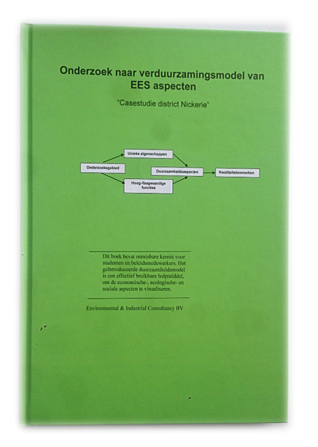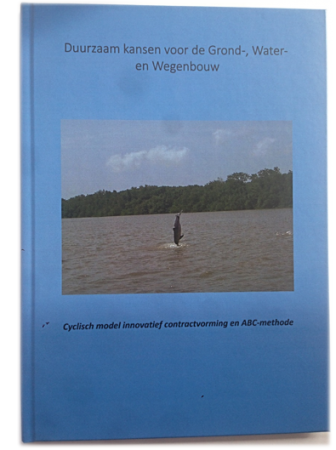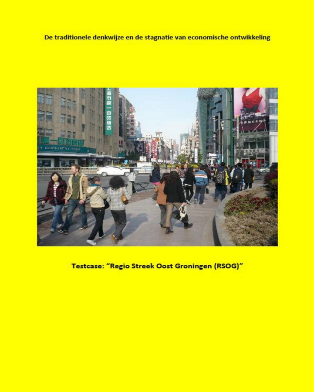Publications

Scientist Ing.R.P.K.Mohansingh PGDip
According GFC News writer and scientist Ing. R.P.K. Mohansingh PGDip it is possible to construct regions in order to strengthen the economy.His main conclusion is that places (districts, towns, villages) are formed by the community. The community, in turn, is formed by the modern individual, his or her social relationship and its identity (norms and values ).
In the traditional political-driven way of thinking about the layout and accessibility of geographic locations, it is assumed that the individual plays no role. In order to break with the traditional way of thinking Mohansingh, in his recently published book entitled: “The traditional way of thinking and the stagnation of economic development”, a methodology is introduced to connect places with eachother according to sustainability principles. This through on the basis of a network of field units construct a sustainable region.
That another economic development vision should be established is clear from the socio-demographic predictions (origin and formation of expansion agglomerations), allowing a higher degree of economic stagnation occur in areas where the communities to a lesser extent have the freedom of choice to be economically develop due to large regional differences within the region of Suriname that is part of the UNASUR and CARICOM region unless they have chosen for a sustainable reclassification.
That an reclassification will take place will be evident from the decline in population in certain districts as a result of migration to Paramaribo and Wanica. This while there certainly are opportunities for utilizing existing natural resources to strenghten such places economically.
Additionally Mohansingh points out the predictable environmental pressure in expansion of agglomerations resulting in a huge increase in expenditure for health care.
Research on sustainable model of EES aspects
Each area consists of unique features, high / low-grade features and durability aspects. With lastst mententioned, this means economic, ecological and social (EES) matters which are in turn are made up of certain certain quality characteristics . It is possible to establish an area according to priciples of sustainability. However, the aspects must be in balance with eachother. In English literature this is also called Triple P’s.
This principle is also applied by contemporary businesses by introducing an environmental management system and / or Corporate Social Responsibility (CSR).
Returning to the concept of sustainability it is obvious that this is appropriately and inappropriately used. While it is not certain why a product is sustainable, or why an area is sustainable arranged.
Concerning civil engineering (site preparation of industrial sites), the concept is for example used for sustainable industrial estate.
As further research is conducted, in practice it is mostly about common green areas, security, etc. These are clearly wrong examples, and explains more of the joint managing a location and / or security, and this only says something about a quality feature. Hence expanded in this book is the discussion of the concept of sustainability and quality features.
To appreciate this concept in terms of good or bad quality characteristics a Sustainability Model has been developed. With this model it is possible to conduct the current status of the field of sustainability-oriented research and figure this out then build a an overall unity testable to quality. A major advantage is that there is no discussion about the concept and that actors have more insight into what is and what could be improved. It is applied in practice enabling it to apply schemes and policy scenarios . This with as a starting point first to capture the unique features and high / low-quality features of the study area and link these definitions, so the identity will be preserved.
The introduced sustainability model is applied in the Nickerie district in Surinam (South- America), where rice farming has an important economic quality function. It appears that on both ecological and social level improvements are a nescessity when concerning development in sustainability.
As such, it is possible from an economic points of view to organize an area where citizens can play a role and participate, and the local government can adapt its policy for a region towards sustainabillity. In addition, it is possible in a simple manner to designate monetary values for a sustainable development of an area, with no need of additional state funding.

Sustainable opportunities for Soil, Water and Road Construction


“Sustainable opportunities for Soil, Water and Road Construction” is the title chosen for this book. The author, Ing. R.P.K. Mohansingh PGDip, used his knowledge and experience in the field of Contract granting, risk management and management of civil engineering projects in general to create for the benefit of small and medium enterprises in a practical way a guideline to the new developments in the civil engineering sector. It is for these reasons that as much as possible the language and vocabulary is common in the industry. And on the basis of the “Cyclic model innovative contract formation and ABC method” the developments in the sector are furtherly explained.
The guidance for the designed model is the framework of “Quality Thinking” of sustainability goals by the government in pursue of a sustainable society.
Hence, special attention is paid to process management (not to be confused with the use of this concept in KMS and MMS), which serves as the basis for the relationship between rights and obligations of Clients and Contractors to contract formation. With the idea underlying, namely the introduction of the new Uniform Terms Integrated Contract (UAV-GC), Model Basic Agreement (EPA) and UAV 2012 On the basis of practical examples are the applicable and published documents elaborated and explained.
Especially when it comes to the concept of “sustainability” is considered the definition of this concept and the applicability in the civil engineering sector and the Tender process. Not only the concept but also the innovative approach to contract formation is raised. From environmental management principles the different methods on the Economic, Environmental and Social aspects are in the first instance highlighted and linked to accounting techniques.
In addition, Systems Engineering (SE) is examined and Network Management introduced. Both subjects namely have a correlation with the information and decision-making in the realization of sustainable development within the civil engineering sector.
Finally, a method which is useful in determining the Most Economically Advantageous Tender (MEAT), is described to calculate the most fair bonus / penalty. After a general description regarding environmental economy Environmental Management Accounting (MMA) on the basis of Activity Based Costing (ABC) explained and elaborated in the applicability for both indoor civil engineering projects as within the organizations of Clients and Contractors.
Sustainable Regrading
The author, Ing. R.P.K. Mohansingh PGDip, has used his knowledge in the field of Sustainable Development, Environment and Social Geographical sciences , to construct in a practical way a sustainable region. The guiding principle for the designed model is to strengthen the economy by constructing regions on the basis of sustainable regrading. His main conclusion is that places (cities, villages) are formed by the community. The community, in turn, is formed by the modern individual, his social relationship and identity (norms and values ). In the traditional political steered way of thinking about (municipal) reclassification and accessibility of geographic locations, it is assumed that the individual plays no role.
In order to break the traditional way of thinking Mohansingh, in his recently published book entitled: “The traditional way of thinking and the stagnation of economic development”, has introduced a methodology to connect areas together according sustainability principles. This can be achieved by, on the basis of a network of field units construct a sustainable region.
That another economic development vision should be established is clear from the socio-demographic predictions (origin and formation of expansion agglomerations), allowing a higher degree of economic stagnation will occur in areas where the communities in less extent have the freedom to make decisions and choices to pursue for economic development.
Duurzaamheid
Milieu & industrië
Het fabriceren van Singhboard duurzaam plaatmateriaal vindt plaats vanuit duurzame principes en draagt bij aan de mondiale milieuvraagstukken, zoals klimaatverandering als gevolg van ontbossing.
Environmental & Industrial Consultancy BV is een onderneming dat internationaal bekend staat als bedrijf met de benodigde kennis en ervaring. Wij geven advies en cursussen op het gebied van onderzoek, ontwikkeling, en projectmanagement, in een breed scala van milieu- en duurzaamheidsvraagstukken.
Environmental & Industrial Consultancy BV is al meer dan 25 jaar actief en heeft een tal van ondernemingen en overheden in Nederland ondersteund, in het kader van milieugerichte oplossingen en economische ontwikkeling vanuit een duurzaam gedachtegoed.
Daarnaast was Environmental & Industrial Consultancy BV nauw betrokken bij de realisatie van Singhboard Holding BV en Singhboard Duurzaam Plaatmateriaal, met als doel om een economische bijdrage te leveren aan duurzame ontwikkeling in de provincie Groningen. Dit is mogelijk geweest, door de nauwe samenwerking met de bewoners en overheden van de provincie Groningen.
Wij hebben er vertrouwen in, dat de provincie Groningen tal van kansen om de economische ontwikkelen en de achterstanden, ten opzichte van het Westen, te verbeteren c.q weg te werken. Vandaar dat wij de provincie promoten binnen ons nationale en internationale netwerk en ondersteunen daarbij ondernemingen om hun duurzame ambities te kunnen realiseren. Daarvoor nodigen wij regelmatig potentiele investeerders uit o.a. uit China om de kansen die Groningen biedt onder hun aandacht te brengen. Ons slogan is dan ook “Groningen de mooiste, duurzaamste regio van Nederland”.

